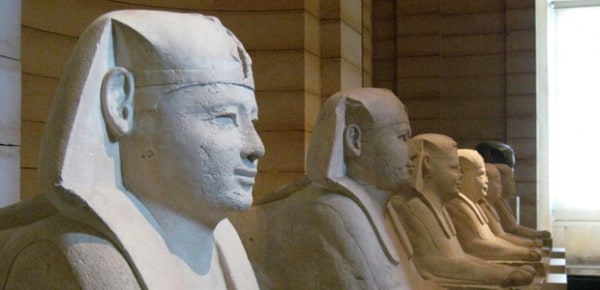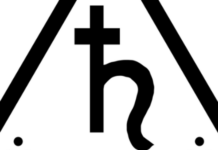
To know
To will
To dare
To keep silent
These nine words are amongst the most widely quoted in occult circles. One particularly hears them many times as a novice. They constitute a mantra known as the Powers of the Sphinx. References are made in the writings of iconic figures such as Éliphas Lévi and Aleister Crowley. Despite their apparent simplicity, each of the Powers of the Sphinx offers profound guidance for any occultist. Each covers a profound aspect of the practice of magick. This is the first in a series of four articles analysing the possible meaning and then considering the implication of each of these aspects in turn.
What does it mean to know something? When interpreting this first power, reference is often made to the famous inscription from the Temple of Apollo at Delphi: “know thyself.” There is obvious virtue in this idea, both in occultism and in life generally.
In this postmodern world, many of us are afforded tremendous freedom to act and think as individuals. It could be argued that individualism is a defining feature of modern magick. This freedom is contrasted against a media barrage seeking to force us into easily definable categories. The occult is no exception to this. There are countless books, websites, and organizations proclaiming that they know how magick should be done. The most direct response is to know yourself as an individual and to resist contrary influences.
There exists a problem with understanding “to know” as meaning “know thyself” that is not often addressed. In an ever changing world are our identities truly constant? Are we precisely the same person today as we were yesterday? Are we the same person at work as we are at home?
Who are you?
The philosopher David Hume went so far as to argue that there is no such thing as the self. When you contemplate the self you will find you have only a series of impressions. You have lusts, hates, fears and hopes; what proof is there that these are founded upon something permanent rather than existing independently in the moment?
If you cannot “know thyself” then you cannot know anything at all. You cannot know, for example that your senses are giving you a true impression of the world.
Another philosopher, René Descartes, argued that for all we know the world might be an illusion crafted by an evil demon. This disturbing idea directly inspired one of the defining films of the postmodern period, The Matrix.
What is known?
What can it mean “to know” if this argument is accepted? A clue may be found in a famous paradox attributed to the philosopher Socrates: “I know that I know nothing.” Socrates is not to be understood as making a confession of ignorance. Indeed he was celebrated as one of the most learned men of his age.
There is an apocryphal story taught to me by my philosophy tutor that was inspired by a dialogue in Socrates’ “The Laches.” A general is said to have been giving a speech to the Athenian army when Socrates interrupted him. The general had just commanded his soldiers to be brave in battle. Socrates questioned what exactly he meant when he said “brave.” The general, being an old soldier, was in no doubt that he was a brave man. In spite of this, he found to his dismay that he could not articulate the meaning of the term. Every definition he proposed was picked apart by Socrates and revealed to be meaningless.
The general felt humiliated because he missed Socrates’ point entirely. The general knew that he was brave only in the sense that he had no reason to doubt that he was. It may be said on this basis that “to know” can be taken to mean “to have no reason to doubt.” A soldier may not know that they are brave but may know that they are not cowardly. This knowledge persists only until such time as fear compels the soldier to abandon his post. If knowledge is not absolute, then the instruction “to know” becomes decidedly more abstract. All knowledge is subjective and should be taken as such. If you know that you know nothing then you may treat your thoughts, feelings and sense data as information. These are fluid things which persist only in the moment.
How do we know?
Of what relevance is this to occultism? In his famous definition, Crowley refers to magick as being a science. By this Crowley meant that it is repeatable, but if we take his definition a step further, we must recognise that any science begins from a position of reasonable doubt. Occultism should never be a blind faith. The devoutly religious do not need to know that their god exists because they have faith. In contrast, even the most fundamental occult ideas are to be questioned. If you find you have no reasonable doubts in an idea, then you may consider yourself to know it. It remains for the individual to decide what level of doubt is considered reasonable.
Consider, as an example, tarot reading: to know that tarot is an effective tool for divination is, in keeping with what has been said, to lack sufficient reason to doubt it. Generations of occultists have utilised these cards for that very purpose amongst others. From a position of reasonable doubt, this heritage is, for most, sufficient to say that they know it is effective. If personal experience does not agree, and you find tarot ineffective, then you have found good reason to doubt what you know. Do not struggle in vain as the devout would be inclined to do. Like Socrates, you have the advantage of knowing that you know nothing. An occultist must work through their doubts.
If you doubt what others know to be the meaning of a particular card, assign to it a variant meaning which you know to be correct. In his Thoth Tarot, Crowley does away with Judgement entirely. Instead he uses a card of similar yet distinct meaning called the Aeon as the 20th major arcana. Evidently Crowley found great reason to doubt the known meaning of judgement. Do not be afraid to follow in the spirit of his example: reinterpret the cards to suit your own purposes. This is not to say that anything goes, because magick is, as has been said, a science, and, as such, ought to be approached systematically. Crowley put many hours into research and experimentation before producing the Thoth Tarot, which was illustrated by Lady Frieda Harris.
Remember to embrace your doubts and, knowing that you know nothing, never let yourself be beholden to convention. To take the words “to know” as an instruction to doubt will seem at first to be a paradox. The practice of magick is laden with such paradoxes and is all the better for them.
Image credit: Wally Gobetz







